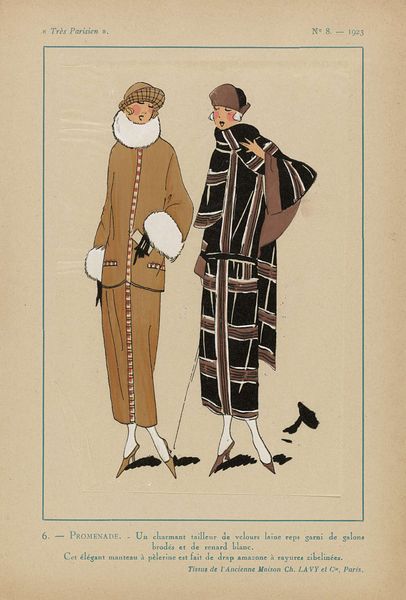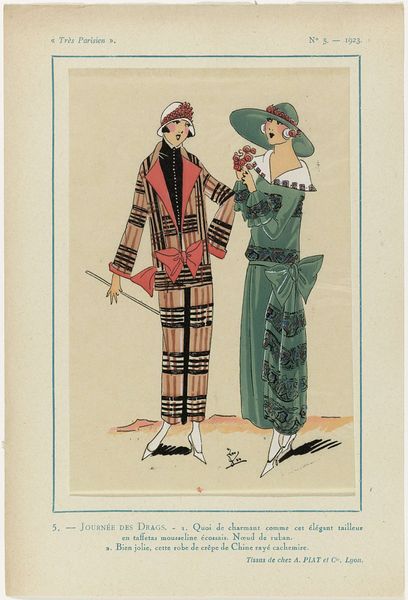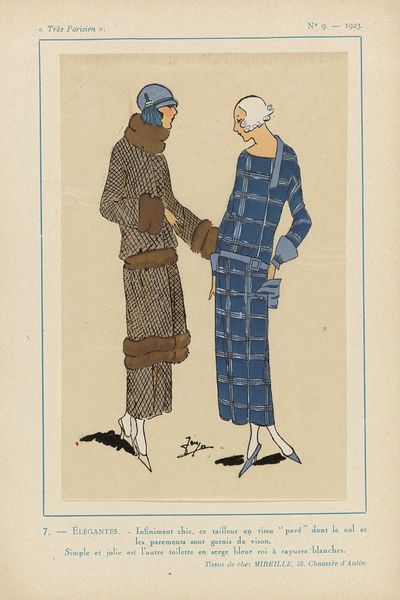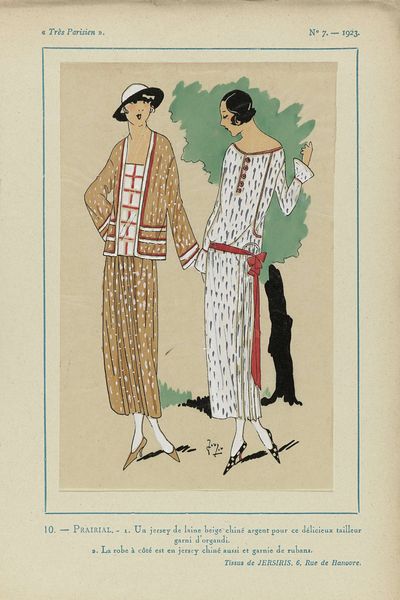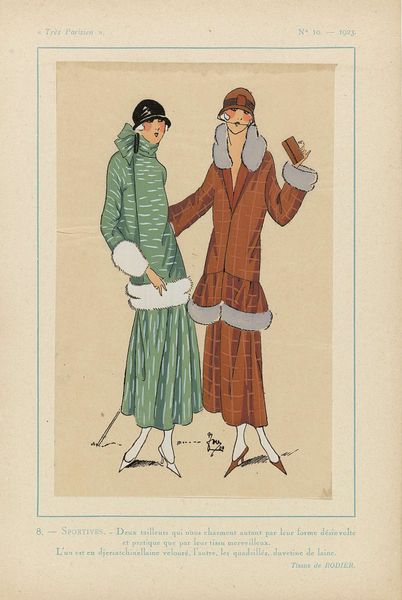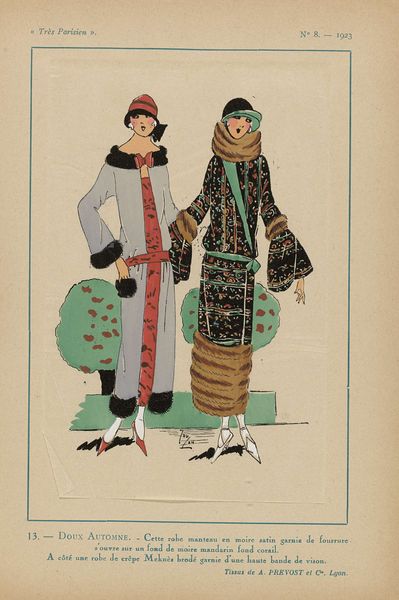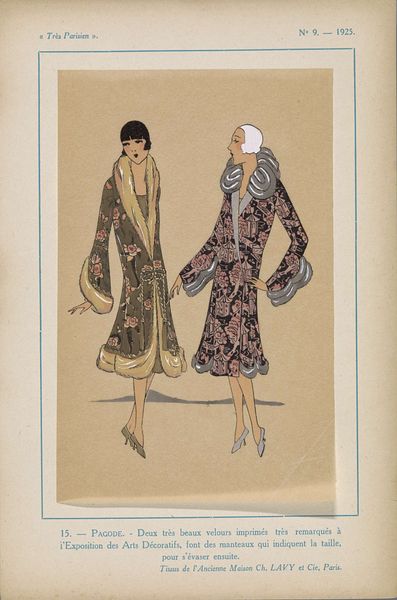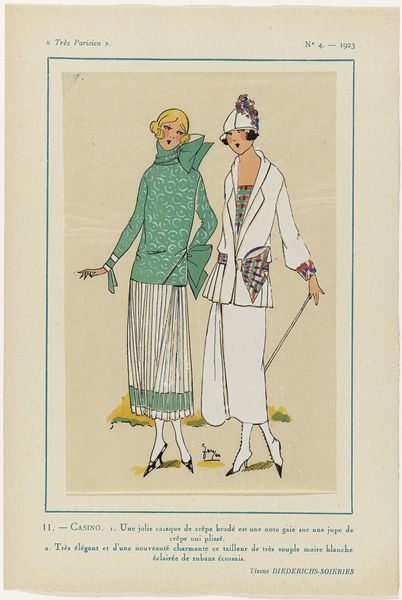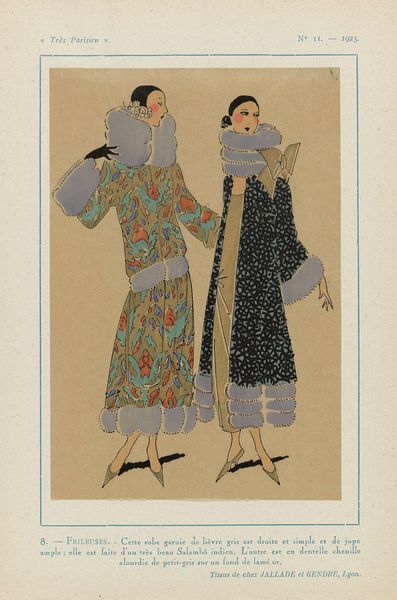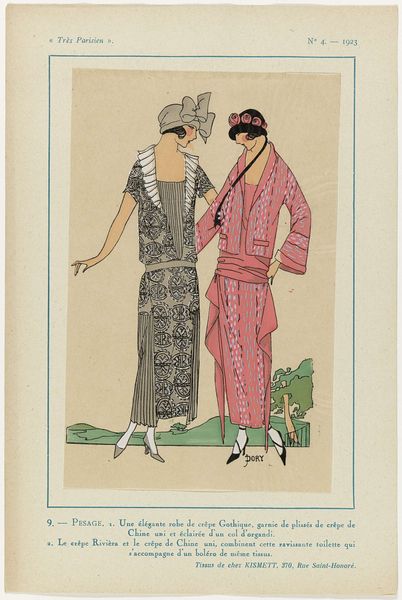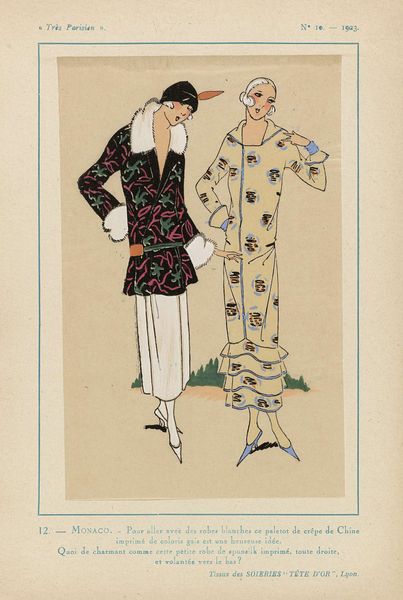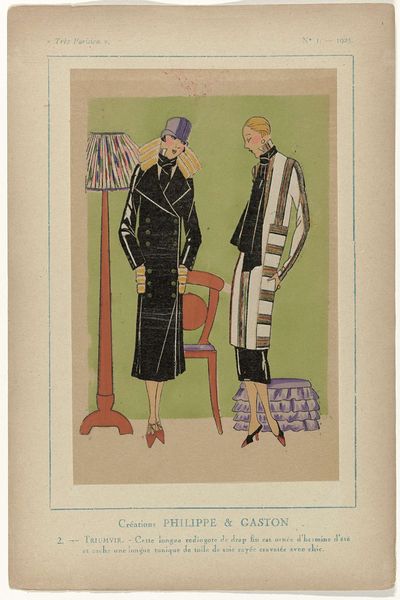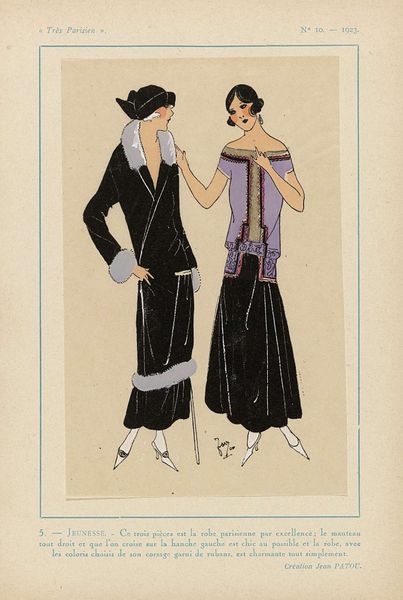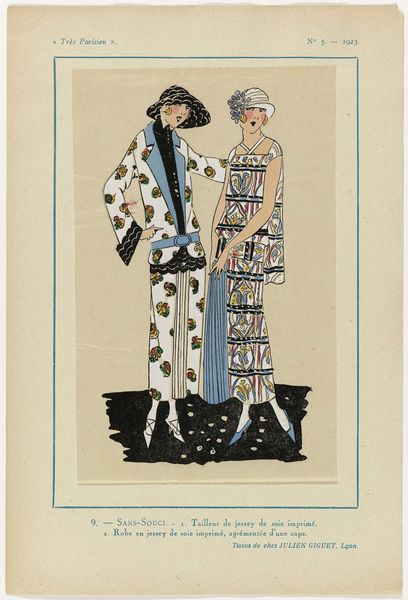
Très Parisien, 1923, No 7: 1-ELÉGANTES. - 1. Une jolie robe-manteau... 1923
0:00
0:00
anonymous
Rijksmuseum
drawing, print, ink
#
portrait
#
art-deco
#
drawing
# print
#
traditional media
#
historical fashion
#
ink
#
cityscape
#
watercolour illustration
#
dress
Dimensions: height 269 mm, width 180 mm
Copyright: Rijks Museum: Open Domain
This fashion plate, Très Parisien, was made in 1923 using print and pochoir. Look at the flatness of this image, it’s like someone has taken a crayon to paper, and tried to produce a kind of decorative, but functional image. The color palette is subtle, yet striking. The muted greens and browns create a sense of understated elegance, while the delicate lines and intricate patterns suggest a world of luxury and refinement. Notice the texture of the paper, and the way the colors blend together, creating a sense of depth and dimension. The green figure has an almost cartoonish flatness, with decorative details added to suggest folds and contours of the clothing. Look at how a darker tone around the hem gives a sense of weight to the design. This piece reminds me of the fashion drawings of Erté, though his work is more theatrical and elaborate, there’s a similar emphasis on line, pattern, and color. Fashion, like art, is always in conversation with the past, reinterpreting and reimagining ideas. It reminds us that there are many ways of seeing and experiencing the world, and it invites us to embrace ambiguity and multiple interpretations.
Comments
No comments
Be the first to comment and join the conversation on the ultimate creative platform.
